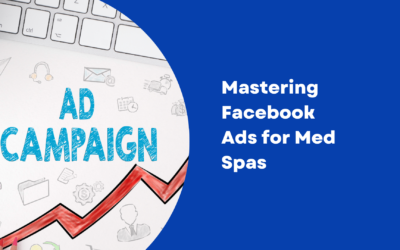In today’s digital age, if your mental health clinic isn’t easily discoverable online, you’re likely missing out on a substantial number of potential clients. This is where Search Engine Optimization (SEO) enters the picture. SEO is a collection of strategies and techniques designed to improve your website’s visibility in search engine results, making it easier for prospective clients to find you. This comprehensive guide will walk you through SEO strategies specifically tailored for mental health clinics, emphasizing the importance and benefits of SEO, how to effectively utilize keywords, on-page and off-page SEO techniques, the role of local and mobile SEO, and much more.
Understanding the Importance of SEO for Mental Health Clinics
The importance of SEO in the context of mental health clinics cannot be overstated. SEO can significantly boost the visibility of your clinic online, helping you appear in the top results when individuals search for mental health services. This increased visibility can, in turn, lead to higher website traffic and ultimately, more appointments.
Moreover, a well-optimized website creates a sense of trust and credibility. An online presence that looks professional and ranks high in search engine results can make a strong first impression, an essential aspect of attracting and retaining clients in the mental health field.
Finally, SEO helps you reach the right audience – those who are actively searching for the services you offer. By targeting specific keywords related to mental health, you can ensure that your clinic is found by those who need your services the most.
Keyword Research
At the core of any successful SEO strategy is effective keyword research. This involves identifying and analyzing the words and phrases that people use when searching for mental health services. The goal is to optimize your website and content around these keywords, increasing the likelihood of your site ranking high in the search engine results for these terms.
Start by brainstorming a list of topics that are relevant to the services your clinic offers. Use tools like Google’s Keyword Planner or SEMrush to analyze the search volume and competition for these keywords. Remember to consider long-tail keywords – longer, more specific phrases that people might use. While these may have lower search volumes, they often have less competition and can help attract more targeted traffic.
On-Page SEO Techniques
On-page SEO involves optimizing individual pages on your website, helping them rank higher and earn more relevant traffic. Here are some crucial elements to consider:
Title Tags, Meta Descriptions, and Header Tags:
These elements are vital for telling both users and search engines what your content is about. Include your target keywords in these areas, but always ensure it reads naturally and provides value to the reader.
Content Optimization:
Incorporate your identified keywords into your website content, including blog posts, service descriptions, and FAQs. Again, ensure the inclusion of keywords feels organic and improves the readability of the content.
Internal Linking and URL Structure:
Internal links are those that go from one page on your site to another. They help search engines understand the structure and content of your website, while also providing value for readers by directing them to related content. Your URLs should also be structured logically and clearly, ideally including your target keywords.
Off-Page SEO Techniques
Off-page SEO refers to activities conducted outside of your own website to improve its search engine rankings. This primarily involves earning backlinks – when other websites link to your site, signaling to search engines that your content is valuable and trustworthy.
Backlinks:
You can earn backlinks by creating high-quality, sharable content, guest posting on other websites, or reaching out to relevant sites and influencers in your field. Always aim for links from reputable, high-authority websites.
Social Signals:
While the direct impact of social signals on SEO is a topic of ongoing debate, there’s no denying that a strong social media presence can help increase your visibility and bring more traffic to your site.
Online Directories:
Listing your clinic in online directories, particularly those specific to mental health services, can help improve your visibility, especially at the local level. Ensure your information is consistent across all directories to boost your credibility and search engine rankings.
Local SEO for Mental Health Clinics
Local SEO focuses on optimizing your online presence to attract more business from relevant local searches. For mental health clinics, local SEO is crucial, as clients often prefer providers located near them.
Google My Business (GMB):
A GMB profile is critical for local SEO. It provides potential clients with essential information about your clinic, like address, hours of operation, and reviews, right in the search results. Ensure your GMB profile is complete and accurate, and regularly update it with new photos and posts.
Online Reviews:
Reviews play a significant role in local SEO. Encourage your clients to leave reviews on your GMB profile and other online platforms. Positive reviews not only boost your local search rankings but also build trust with potential clients.
Schema Markup:
This is a form of microdata that helps search engines better understand your content. Local business schema markup can be used to provide specific information about your clinic, like your services, reviews, and operating hours, improving your visibility in local search results.
Mobile SEO
With the majority of people using mobile devices to access the internet, having a mobile-friendly website is no longer optional; it’s a necessity. Google uses mobile-first indexing, meaning it predominantly uses the mobile version of your content for indexing and ranking.
Mobile-Friendly Website:
Your website should be responsive, meaning it automatically adjusts to fit the screen size of the device it’s viewed on. This ensures a positive user experience, which is critical for keeping visitors on your site.
Mobile Page Load Speed:
Speed is a significant factor in mobile SEO. If your site takes too long to load, users are likely to leave, which can negatively impact your search engine rankings. Use tools like Google’s PageSpeed Insights to check your site’s speed and get recommendations for improvement.
Tracking SEO Success
Implementing SEO strategies is only the beginning. It’s crucial to continuously monitor and track your SEO progress to understand what’s working and what needs adjustment. Tools like Google Analytics and Google Search Console can provide valuable insights into your website’s performance.
Google Analytics:
This tool provides a wealth of information about your website’s traffic, including where it’s coming from and how users are interacting with your site.
Google Search Console:
This tool helps you understand how Google views your site. It shows you which keywords your site is ranking for, any crawl errors Google encountered, and much more.
Key Metrics to Monitor:
Keep a close eye on metrics like organic traffic, keyword rankings, bounce rate, and conversion rate. These can provide insight into the success of your SEO efforts.
Common SEO Mistakes to Avoid
As you embark on your SEO journey, be mindful of these common pitfalls:
Targeting the Wrong Keywords:
Always align your keywords with the services you offer and the terms your potential clients are using.
Neglecting Local SEO:
As a mental health clinic, your primary audience is likely local. Don’t overlook the importance of optimizing your online presence for local search.
Ignoring Mobile SEO:
A mobile-friendly website is essential for reaching clients who are searching on their mobile devices.
Failing to Monitor SEO Performance:
Regularly check your key metrics to understand if your SEO strategies are working or
if they need adjustment. Use the insights from your tracking tools to make data-driven decisions.
Wrapping up
SEO is a vital tool in the digital marketing arsenal of mental health clinics. By understanding and implementing the strategies discussed in this guide, you can increase your online visibility, reach a larger audience, and ultimately provide help to those who need it most. Remember, SEO is not a one-time task but a continuous effort. Stay updated with the latest SEO trends and changes to maintain and improve your search engine rankings over time.
Next Steps
Are you ready to boost your mental health clinic’s online visibility and reach more clients? Implementing effective SEO strategies can be a complex and time-consuming process, but the benefits are well worth the investment. If you need further guidance or professional SEO services tailored to your clinic’s needs, don’t hesitate to get in touch. We’re here to help you navigate the world of SEO and achieve the results you’re aiming for.
And there we have it – a comprehensive guide to SEO for mental health clinics. However, the SEO landscape is constantly changing. If you want to delve deeper into any of the topics covered in this guide or stay updated with the latest trends, please let me know, and we can continue the conversation.





